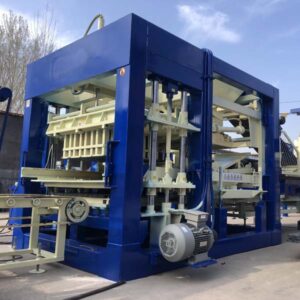
Title: **Breaking Barriers: Strategies for Full-Automatic Block Manufacturers to Navigate Trade Barriers**
Introduction:
In the globalized landscape of full-automatic block manufacturing, trade barriers can pose significant challenges. From regulatory complexities to tariff restrictions, these barriers can impact market access and hinder international growth. This article explores strategic approaches that full-automatic block manufacturers can adopt to effectively navigate and overcome trade barriers, fostering resilience and sustained success in the global market.
1. **Comprehensive Market Research:**
Understanding the regulatory landscape and trade barriers of target markets is fundamental. Conducting comprehensive market research provides manufacturers with insights into local regulations, standards, and trade policies. This knowledge forms the basis for strategic decision-making and enables manufacturers to proactively address potential challenges before entering a new market.
2. **Strategic Alliances and Partnerships:**
Establishing strategic alliances and partnerships with local entities can be instrumental in navigating trade barriers. Collaborating with distributors, agents, or joint venture partners who have a deep understanding of the local market can facilitate smoother market entry and help navigate regulatory complexities more effectively.
3. **Customization to Local Standards:**
Adapting full-automatic block products to comply with local standards and regulations is a proactive strategy. This not only ensures regulatory compliance but also demonstrates a commitment to meeting the specific needs of the market. Customizing products to align with local building codes and quality standards builds trust with regulatory authorities and customers.
4. **Engagement with Regulatory Bodies:**
Proactive engagement with regulatory bodies is crucial for navigating trade barriers. Manufacturers should establish open lines of communication with relevant authorities, seeking clarification on regulations and ensuring compliance. Participation in industry forums, trade associations, and regulatory consultations can provide manufacturers with valuable insights and influence policy decisions.
5. **Investment in Certifications and Compliance:**
Investing in certifications that demonstrate compliance with international standards is a strategic move. Certifications such as ISO standards for quality management and environmental sustainability enhance the credibility of full-automatic block manufacturers. Meeting recognized certifications can expedite regulatory approvals and foster trust among global partners and customers.
6. **Diversification of Market Presence:**
Diversifying the geographic spread of market presence helps mitigate risks associated with trade barriers in specific regions. Instead of relying heavily on a single market, full-automatic block manufacturers can strategically distribute their presence across multiple countries. This diversification minimizes the impact of localized trade disruptions.
7. **Advocacy and Lobbying:**
Participating in advocacy efforts and lobbying for fair trade policies is a proactive approach for full-automatic block manufacturers. Collaborating with industry associations and trade groups to voice concerns and advocate for trade policies that facilitate fair competition can lead to positive changes in regulatory environments.
8. **Agile Supply Chain Management:**
An agile supply chain is essential for navigating trade barriers effectively. Manufacturers should assess their supply chain vulnerabilities and establish contingency plans. This may include identifying alternative suppliers, optimizing inventory levels, and ensuring flexibility in production processes to adapt quickly to changes in trade conditions.
9. **Utilization of Free Trade Agreements:**
Leveraging free trade agreements (FTAs) can provide significant advantages. Full-automatic block manufacturers should strategically position themselves in regions covered by FTAs to benefit from reduced tariffs and streamlined trade procedures. Understanding and capitalizing on the provisions of FTAs can enhance market competitiveness.
10. **Continuous Monitoring and Adaptation:**
Trade barriers are dynamic and subject to change. Full-automatic block manufacturers should establish mechanisms for continuous monitoring of trade policies, tariffs, and regulatory developments. Staying informed allows for timely adaptation to evolving trade conditions and ensures a proactive rather than reactive approach.
Conclusion:
Navigating trade barriers is a nuanced challenge for full-automatic block manufacturers, but with strategic planning and proactive measures, it becomes an opportunity for growth and resilience. By staying informed, building strategic alliances, and adapting products and operations to comply with local regulations, manufacturers can position themselves as agile players in the global market, ready to overcome trade barriers and thrive in diverse economic landscapes.
